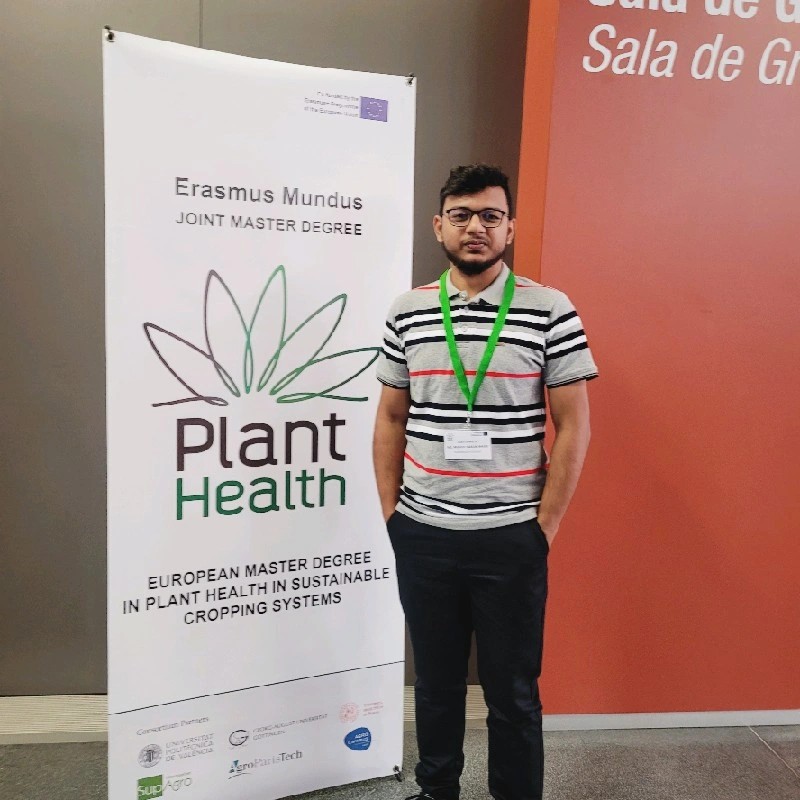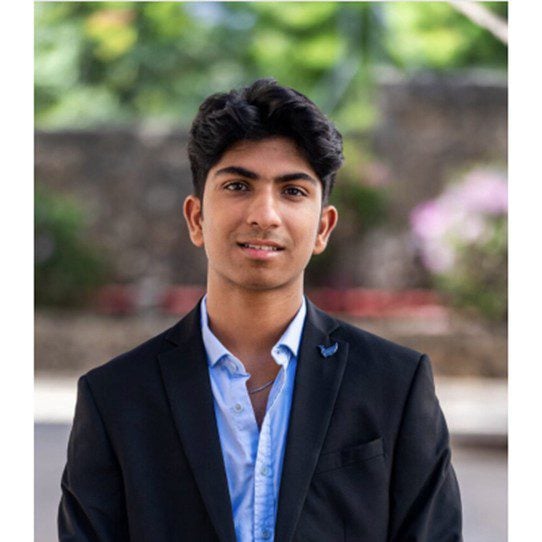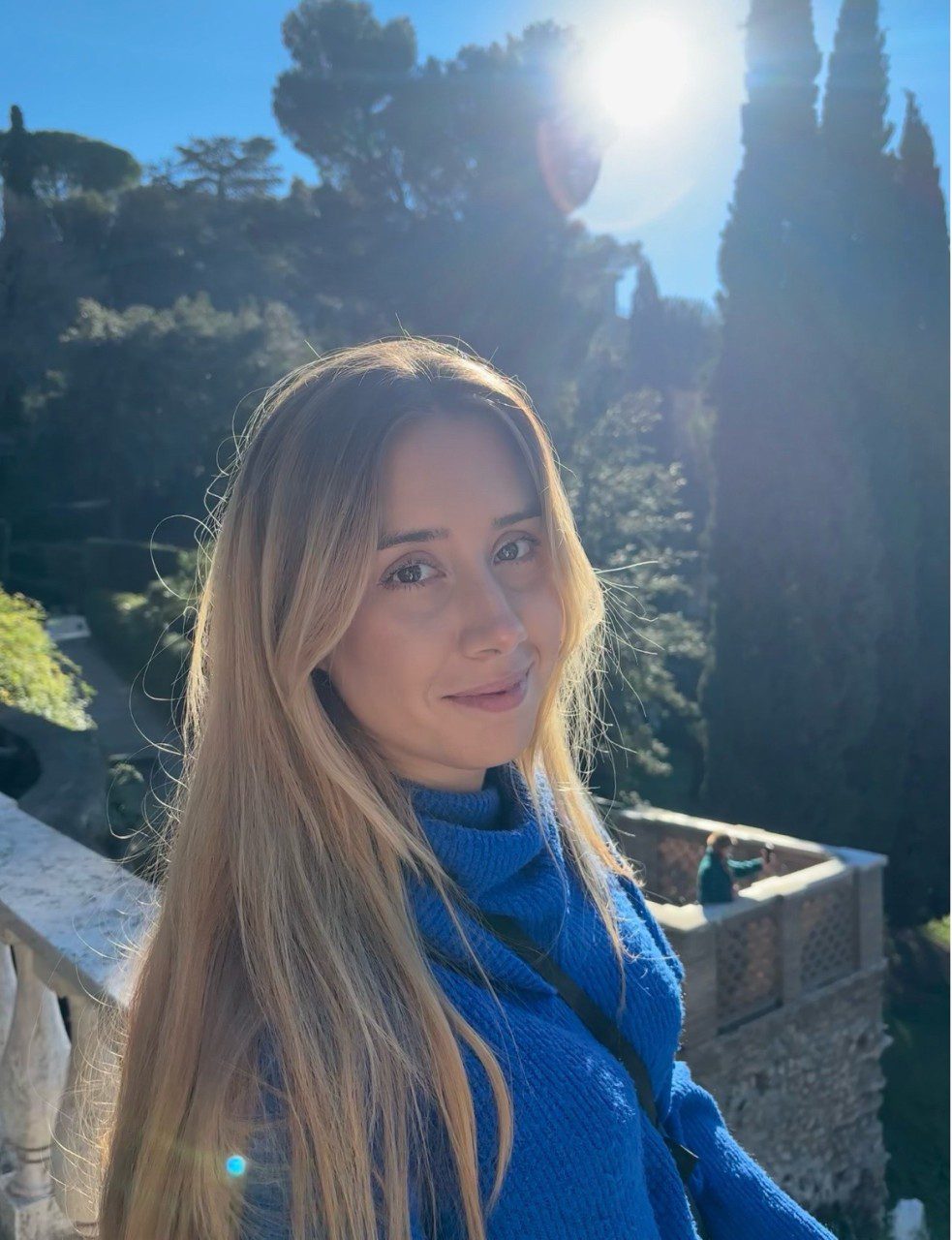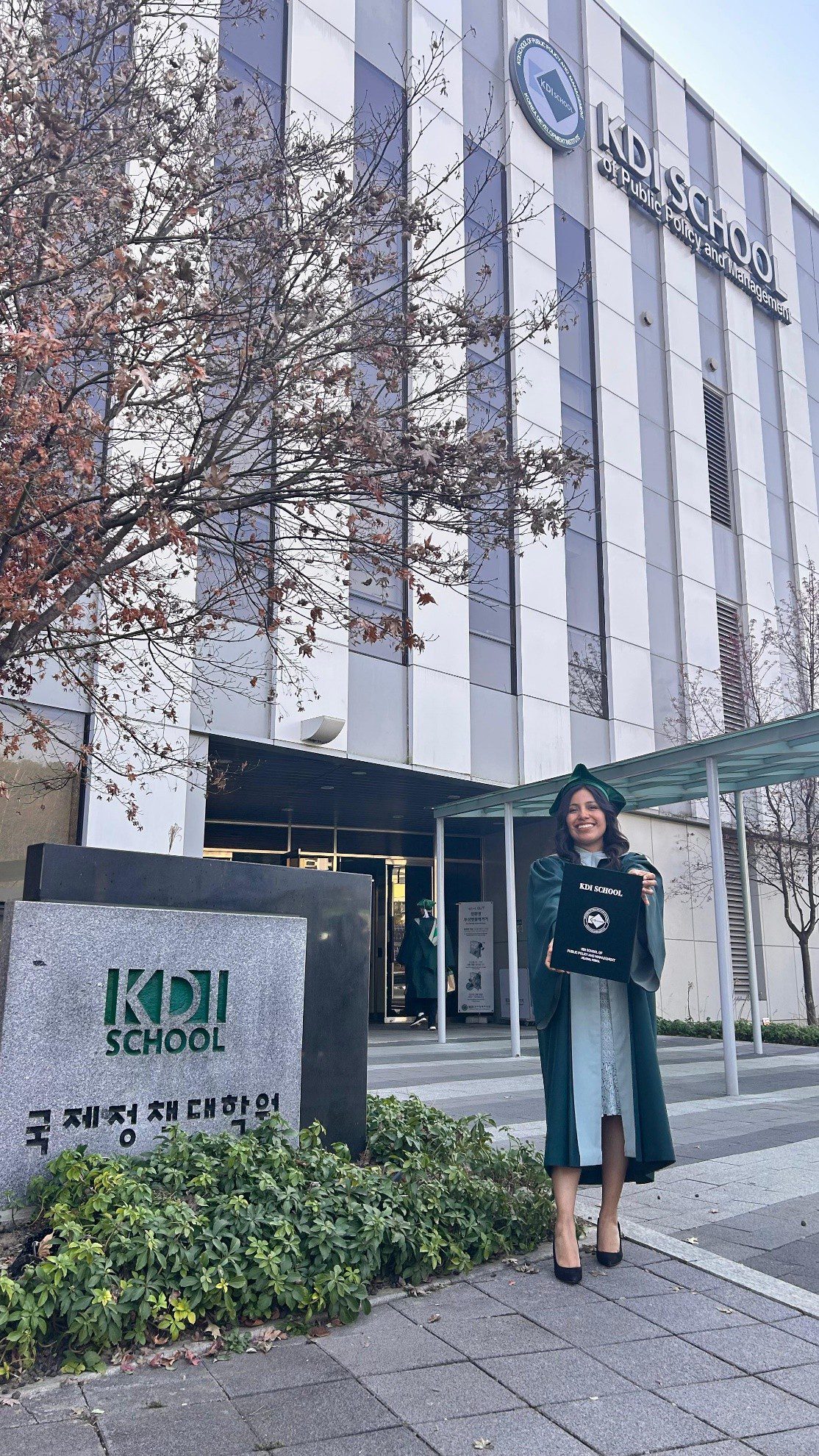Bangladeshi Agriculture Graduate Wins Erasmus Mundus Scholarship to Study Plant Health in Spain and France
University: Universitat Politècnica de València, AgroParisTech, and L’Institut Agro
Degree: Erasmus Mundus Joint Master’s in Sustainable Agriculture in Plant Health
Previous Education: Bachelor’s in Agricultural Sciences from Bangladesh Agricultural University
Scholarship: Erasmus Mundus Scholarship (covers tuition fees, provides a monthly stipend, and funds mobility across multiple European countries)

The Journey
My name is Md Mehedi Hassan Sharif, and I am from Bangladesh. I completed my Bachelor's degree in Agricultural Science at Bangladesh Agricultural University. Currently, I am pursuing a Master's in Plant Health through the Erasmus Mundus program. In the first year of the program, I am studying at Universitat Politècnica de València (UPV) in Spain, and in the second year, I will continue my studies in France at L’Institut Agro and AgroParisTech.
Educational Background
I completed my Bachelor’s degree in Agricultural Sciences in April 2023. Following that, I began an MSc in Entomology at the same university. However, I had to discontinue that program to join the Erasmus Mundus Master's in Plant Health here in Valencia.
During my academic journey in Bangladesh, I focused heavily on research. I actively sought out opportunities to participate in research projects to build a strong foundation and practical experience. Initially, my goal was to pursue a PhD in the USA, but when I discovered the Erasmus Mundus program, I saw it as a valuable opportunity for international academic exposure and hands-on experience across multiple countries. I applied and now, here I am! pursuing my passion in Europe.
How Did You Prepare to Apply for Erasmus Mundus Scholarships?
Well, I applied only to the Erasmus Mundus Master's in Plant Health program. Initially, I wasn’t planning to study in Europe; my goal was to pursue a PhD in the USA. However, when I came across this program, its structure, mobility, and academic quality stood out to me, and I decided to apply.
Erasmus Mundus is extremely competitive, and receiving the scholarship depends on many factors. The selection process considers the Statement of Purpose (SOP), Letters of Recommendation (LOR), academic achievements, research and volunteer experiences, and how well the applicant fits the program's goals. For the Plant Health program, over 1,200 applicants applied the year I did, which shows how competitive it was.
I believe my application stood out primarily due to my strong research background and personalized recommendation letters. I had the opportunity to work on more than eight research projects during my undergraduate studies. One of these projects was a collaborative effort with Virginia Tech University in the USA and was funded by USAID. My research was focused on a specific area—biological control of insects, which helped me establish a clear academic and professional direction. I think having a focused research interest really strengthens an application and shows commitment.
In my opinion, Erasmus Mundus is one of the most prestigious scholarships in Europe. Its mobility feature is especially valuable, allowing me to experience agricultural practices, regulations, and cultures in different countries. This diversity is not only enriching academically but also helps build adaptability, which is essential for future global research or professional work.
Could you briefly discuss the Erasmus Mundus program you pursued and the specific field of study it focused on?
I am currently pursuing an Erasmus Mundus Joint Master’s in Sustainable Agriculture in Plant Health. The core focus of this program is to promote sustainable agricultural practices, especially by reducing reliance on chemical pesticides, which negatively affect soil, plant health, and human health.
This program places strong emphasis on long-term, eco-friendly solutions such as biological control, aligning with the European Union’s strict regulations and increasing shift toward sustainable pest management practices. One of the key strengths of this master's is that it provides a comprehensive understanding of all essential subjects and concepts related to plant health including plant pathology, entomology, weed science, population genetics, Sustainable farming systems, Integrated pest management (IPM), and biological control strategies.
Overall, it equips students with both theoretical knowledge and practical skills needed to address plant health challenges using sustainable and scientifically sound approaches.
How did the cost of living vary across the countries you studied in? Which country was the most affordable or expensive, and how did you manage financially?
The cost of living varied more by city than by country. For example, in Spain, cities like Barcelona and Madrid tend to have higher living costs, mainly due to expensive accommodation. In contrast, Valencia, where I currently study is more affordable. On average, around 700 euros per month is usually enough to live comfortably in most cities, although if your university is located in a central or high-demand area, you might need to budget a bit more.
I receive the Erasmus Mundus scholarship, which covers my tuition and provides a monthly stipend, so fortunately, I haven’t had to worry much about financial challenges.
In general, I found that countries with a warmer climate, like Spain and Portugal, tend to have a lower cost of living compared to colder countries like Norway or Sweden, where expenses, especially for housing and utilities, can be significantly higher.
Did you face any language barriers, and if so, how did you overcome them? Did the language of instruction change from one country to another?
To be honest, facing language barriers has been one of the most challenging aspects of studying in Europe. While the language of instruction for most Erasmus Mundus programs is English, daily life in many European countries requires knowledge of the local language.
In my program, we had a Spanish language course that taught us the basics, just enough to handle daily tasks like shopping, asking for directions, or dealing with official matters. However, knowing languages like Spanish or French definitely gives you a big advantage, both academically and socially.
For my second-year mobility in France, the situation is more demanding. Some of the classes will be conducted in French, and the requirement is to have at least a B2 level in the language. We are a group of four students going to France, and we’ve been given a specialized French course as preparation. Currently, I have reached A2 level, and during the summer break, we’ll attend a French summer school to reach B2.
It’s definitely not easy, but when you think about it, learning a widely spoken language like French or Spanish is always a valuable skill for both personal growth and future career opportunities.
Would you recommend the Erasmus Mundus program to others? What advice would you give to someone considering this scholarship?
Yes, I would definitely recommend the Erasmus Mundus program to others. It’s not just a scholarship, it’s a life-changing experience. You get the opportunity to study in multiple countries, experience different cultures, learn new languages, and most importantly, build a strong international network with students and professionals from all over the world.
For anyone considering this scholarship, my advice would be:
Find your academic and research focus first – Know what you’re truly interested in. A focused profile strengthens your Statement of Purpose (SOP) and makes your application more coherent.
Start early – Prepare your documents (SOP, CV, Letters of Recommendation) well in advance. Avoid rushing the process.
Make your SOP personal and unique – Don’t write a generic statement. Explain your motivations, your goals, and how this specific program fits into your future plans.
Gain relevant experience – Whether through research, internships, volunteering, or academic projects. These show initiative and dedication.
Choose recommenders who know you well – Strong, personalized recommendation letters can really make your application stand out.
Check language requirements – Some programs may require proficiency in a second language like French or Spanish, so plan accordingly.
Erasmus is very competitive, but it’s also one of the most rewarding scholarships available. If you prepare well and apply with sincerity, your chances are strong.
Looking back, would you have done anything differently during your time in the program?
Well, I haven’t finished the program yet — I’m currently at the end of my first year, so in terms of the program itself, I don’t think there’s anything major I would change so far. However, if I could go back, I would have taken learning Spanish or French more seriously when I was still in Bangladesh after receiving the scholarship. I had about three or four months before the program started, and I realize now that using that time to build up my language skills would have made things much smoother and helped me integrate and communicate more effectively here.
Want to submit your
scholarship journey?
Submit Your Story Here!
More Scholarship Recipients

My name is Arsh Dharani, and I am an international student originally from the Democratic Republic of the Congo (DRC). I am .... Read more

Hi! My name is Arawa. I’m a Marie Skłodowska-Curie PhD researcher working on AI-based neuroimaging biomarkers for Parkins .... Read more

Hello! My name is Alexandra Eras, and I am from Ecuador. I studied Economics and completed a major in Gender, Violence, and .... Read more

Leave A Comment